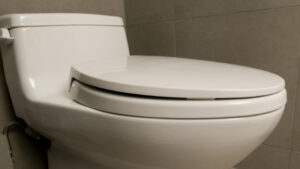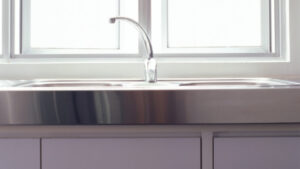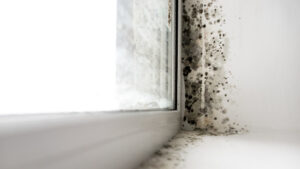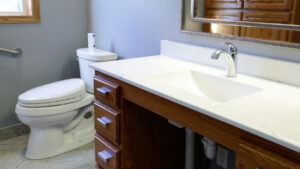Top 7 Plumbing Mistakes New Homeowners Make
The hassles associated with moving into your first home can drain you to the bone. It is therefore not surprising that you may easily make several rookie mistakes as you undertake some plumbing repairs to fix problems that went undetected when you were checking the home before buying it. Here are the top plumbing mistakes that the plumbing professionals at Tureks Plumbing Services regularly encounter with inexperienced first-time homeowners.
Thinking Any Tool Will Do
Many homeowners don’t have a sufficient collection of plumbing tools to attend to every plumbing defect that may arise. The temptation to improvise when you want a quick fix to a plumbing problem can, therefore, be high.
However, Fox Valley plumbers advise that you avoid using any makeshift tool when tackling plumbing problems because you risk making the problem worse or injuring yourself. For example, not any random tool that you find can cut a metallic plumbing pipe. Only undertake a plumbing project in your new home if you have the right tools for that job.
Taking Long to Fix Minor Defects
Another common mistake that plumbers in Appleton, WI see is that homeowners neglect to fix plumbing problems that they regard as minor. For example, you may not pay sufficient attention to a dripping faucet because you’re busy settling in.
Those plumbing issues that you regard as minor can worsen and be costly to fix later on. For example, the dripping faucet can cause water damage to the floor and walls. A running toilet can flood. The list goes on and on. It is therefore advisable for you to fix each plumbing problem you notice as soon as possible so that it doesn’t get a chance to get any worse. If you can’t, then call a Fox Valley plumber for help.
Not Shutting the Water Off
It is very easy to get distracted by the task of putting together the different tools and materials that you will need for a plumbing project, and you forget what professionals consider to be Plumbing 101; turning the water off before you start.
Many homeowners confess that they learn this the hard way after getting started and having water gushing into their faces at high pressure. The resultant water damage from this mistake can be enough to make some people vow never to undertake any plumbing DIY project.
Don’t let this happen to you. Learn from the mistakes of others and shut the water off before you begin fixing any plumbing defect. Tureks Plumbing Services recommends that you locate the shutoff valve of the particular plumbing fixture that you want to fix so that the rest of the home can still have running water. For example, your kitchen faucet has a shutoff valve somewhere underneath the sink. The toilet also has a shutoff valve somewhere behind the toilet tank. Use the main shutoff valve located outside the home if the repair you want to undertake affects the main water line, or when you can’t locate the shutoff valve for the defective fixture.
Mismatching Plumbing Materials
One major shortcoming of DIY projects is that many homeowners don’t have enough experience to know that some materials don’t go well together. For example, did you know that you can trigger large scale water pipe corrosion if you join two pipe sections with a metallic connector that is not compatible with the pipes you are joining?
Talk to a plumber in Appleton, WI before you buy plumbing repair materials. That way the professional can guide you about which material is compatible with your home’s plumbing system. This guidance will save you from installing incompatible materials that can end up creating bigger problems.
Doing Unpermitted Work
The plumbing code usually stipulates which plumbing projects can be done without a permit and which ones require a permit. It is vital that you ascertain whether the project you want to take on requires you to get a permit from the authorities or you don’t need one.
Otherwise, unpermitted work can result in serious issues later on. For example, you may find it hard to get a buyer for that home if the pre-purchase inspection uncovers unpermitted work. You could also be prosecuted and fined if the authorities discover that you didn’t obtain the necessary permit required. It doesn’t hurt to talk to a Fox Valley plumber as you plan your plumbing project just to be sure that you won’t run into any problems later.
Careless Mistakes While Soldering
Some plumbing projects, such as repairing pipe leaks, may require you to do some soldering. Be extra careful if your project requires you to bring out your soldering torch. For example, ensure that you have covered or removed anything flammable from the work area before you start. Additionally, you should never set the torch down when its flame is still lit. Exercise caution and be aware of your surroundings at all times while you work. If you aren’t sure about your ability to implement all the necessary safety precautions, simply call a plumber in Appleton, WI for help.
Not Asking for Professional Help
It is okay for you to fix as many plumbing problems in your home as you can. Our team at Tureks Plumbing Services make it our duty to share useful information that can empower you to resolve plumbing problems without calling an expert each time a problem crops up. However, we always caution homeowners to know their limitations. Always ask for professional help when situations go out of your expertise. This is serious enough to warrant repeating; contact Tureks Plumbing Services each time you are faced with a plumbing problem that you are unable to fix on your own. We are available 24/7, so don’t put your safety and property at risk when we can sort the problem quickly.








